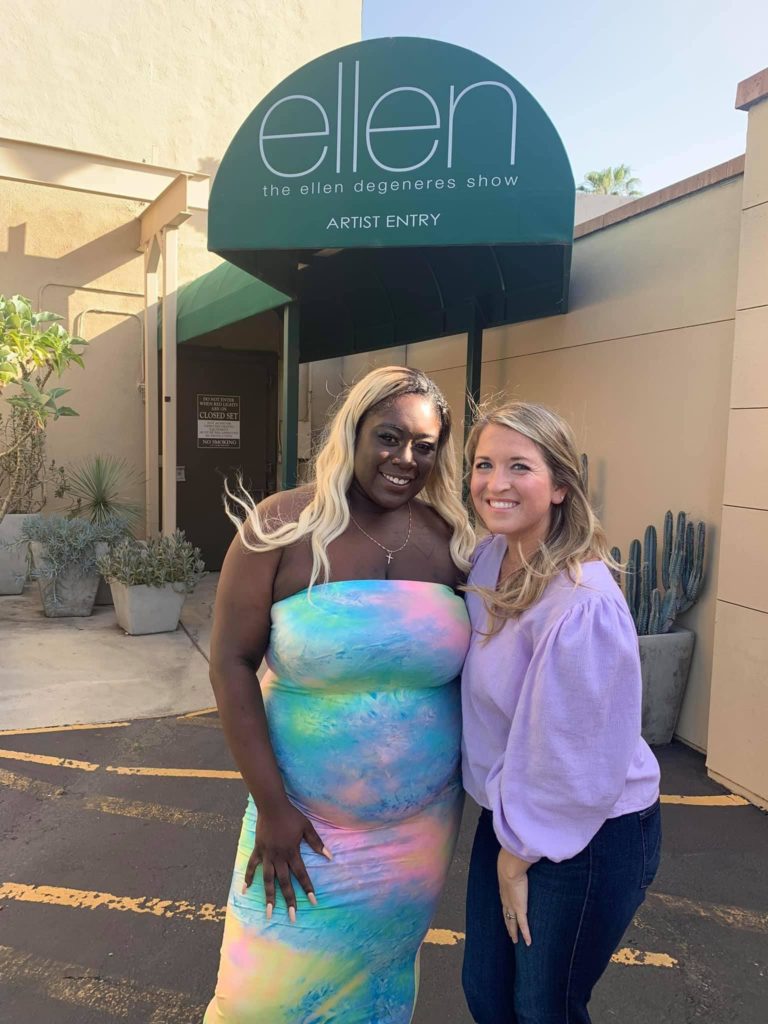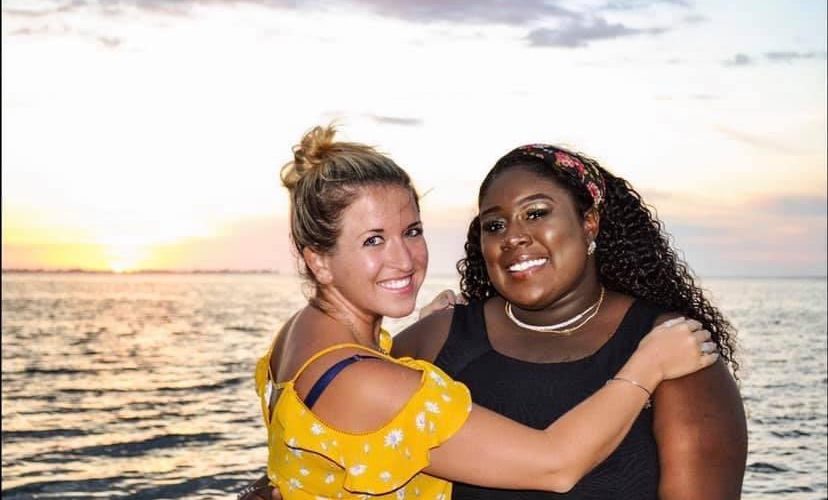Adoption is a beautiful gift for many families. It is a fitting and acceptable way to guide children in foster care to a forever family. But what happens if, time and time again, some foster children get rejected? Maybe they have bad attitudes (wouldn’t you if you had been taken from the only home you ever knew and given to strangers with strict rules?) Maybe they act out in anger (Mightn’t you if you were taken away from what you know and love and put in different, scary situations?) Maybe they are just “too old” to be considered for adoption by most people. Sadly it is the last one that is more often the case. A child who so desperately needs a home is denied one, not for anything they have done, but because adults fear them being too old.
There are too many sensationalized articles online and in newspapers that depict children in foster care as violent or deviant in some way. That is just not the case. Children are in foster care because of something their parents have done, not because of something they themselves have done. Regardless, there is a stereotype of older foster youth being hoodlums or worse. It is why so many older children are featured in foster photo galleries, hoping to be adopted one day. Sadly, most of those hopes will go unanswered and unfulfilled. Many, many children will “age out” of the system (a sterile legal term that means they are “too old” to find a family) and find themselves homeless, lacking basic life skills, and desperate.
Thankfully, this is not the case for one happy family in Florida. Monyay, at 19 years old, finally found a forever family in an unusual place: her former foster care caseworker. Leah Paskalides had watched Monyay grow up in foster care. Monyay’s was one of the first cases that Leah had worked on as a new social worker. At first, the girl didn’t like her, but after some time they became close. Leah began as Monyay’s caseworker and later became a mentor who helped Monyay learn and grow. Year after year, she watched the girl get passed over for adoption.
Leah was unable to adopt her because of a conflict of interest as her caseworker. The law prohibited Leah from becoming involved legally while Monyay was under 18. This is because in some cases, it could be construed that a caseworker wishes to remove a child from his or her home so the caseworker can adopt the child. While this is not the case with Leah, it is a standing law that cannot be overruled, much to both parties’ disappointment.
However, when Monyay aged out of the system, still without a family to love and support her into adulthood, Leah was struck with an idea. She had seen a news story about adult adoption. She had been entirely unaware that was a possibility. With this new information, she contacted Monyay and asked her if that was something she wanted. Monyay said yes, and Leah began the process to legally and officially adopt 19-year-old Monyay.

Monyay was ecstatic. She had wanted a mom her whole life, and now she finally has one. “It’s not all about the younger kids in [foster] care, because us teenagers and older kids in care, we need love, too,” Monyay said. “A lot of people have assumptions about us, but we’re not bad kids. We need love, too, just like the younger kids.”
“It was really hard going from being in a group home with an adult to help you to immediately being by yourself without an adult to help,” Monyay told Good Morning America. This young lady is currently working in a daycare center and mentors foster youth just like her mom had done for her. Monyay is thriving in her home, thankful and grateful to have a mom after so many years of not having one. She had called Leah “Mom” since she was 16, but making it official was really special.
Leah told Good Morning America, “She now refers to her adoption day as her birthday, so she has two birthdays each year. We were always close, but now when she calls me, it means something even more to her. It’s legal, and that means the world to her, because for so long she didn’t really have a mom.”
To NBC News, Leah said, “I just wish that people that are open to adoption don’t look at an age and a picture and are just open to getting to know them as a person.”
According to KBTX.com, Leah stated, “[Monyay] had always said, ‘I wish you could adopt me.’ I couldn’t because of the job, and then, I was watching a documentary where the person had been adopted as an adult. I had never really heard of it,” she said. “I never thought I was getting adopted—never—especially not as an adult. So, my thing is don’t give up,” Monyay said.
Monyay hopes that their story will inspire others to consider adopting an older child. All children are in need of a family, not just babies and little kids. This is a girl speaking from personal experience. She could have let all of those years of waiting make her bitter and disappointed. Instead, she is using her voice to advocate for people like herself who just need a chance. I find that to be so special in a world full of people saying you should only look out for yourself. This woman could have been bitter and angry, but she isn’t. She is simply thankful she finally has a mom and wants other kids in her former situation to feel the same love she does. It is especially beautiful that they were able to complete the process right before Mother’s Day, so they could celebrate that special day as an official family.
If this wonderful adoption story could happen to Leah and Monyay, why couldn’t it happen to you? There are literally thousands of children waiting, praying, and hoping for a family. You don’t need to be perfect. You don’t need to be wealthy or extra special. You just need to be willing to learn and grow. Things won’t always be picture perfect and you need to be okay with that idea.
Because of the disappointment, frustration, and sadness that many children in foster care experience, it is difficult for them to believe that someone finally cares for them. Psychologically, this is called attachment difficulty or attachment disorder. In day-to-day living, it looks like a rejected hug, a defiant action, or an ignored request. In older children, it may look like lying or only telling half-truths. This doesn’t happen because they’re bad children or bad teens. It is often because the trust they had for their caregivers during their formative years was taken advantage of. As I said, these children don’t come into care because of things they have done, but because of things that were done to them. If babies are constantly ignored when their diaper is wet or when they’re hungry or when they’re scared, those babies learn to rely on themselves. It is an unfortunate truth, but it is what happens in cases of neglect.
A caseworker once told me, abuse says “I see you and I don’t like you,” while neglect says “I don’t even see you and you don’t matter.” As damaging as both statements are, the second one seems to take a bigger toll on mental health and well-being. A child may act out just to be seen. Just to feel heard, they may scream at the top of their lungs, never caring that they are hurting your ears or that they are driving people further and further away with their actions. Babies who are considered “good babies” for being quiet all the time may be suffering silently because they are certain no one would come if they cried.
When children are told “this is your forever home,” but then test their boundaries and find out forever only means few weeks, they will stop believing the adults around them. They will start looking for ways to prove you are wrong and their suspicions are right. But this still isn’t their fault, and it isn’t a moral failing. As in the case of Leah and Monyay, it is a years-long process of building trust, encouraging a relationship, and helping the child understand you have her back no matter what.
This is my reality living with my adopted children. Two of them were in six different foster homes before they came to live with us at ages 3 and 4. Can you even imagine how confusing that would be? Six different sets of rules. Six different families who expect different things out of little girls who can just barely walk and talk. In every house, there was a new mommy and daddy who were going to love them forever. Every new house brought a new bedtime routine or weird food. Every time they were told this is where they would live from now on. Then something would go wrong, or the CPS system would do them a disservice, and they would be moved again. It has taken years for them to believe that they aren’t moving away.
There are still moments where I can see them testing our love. They will spout hate, wreak havoc, or cause actual damage to something. They might say things like “I wish you weren’t my mom.” Or “You’re not my real mom anyway.” And it will cut me deep. They are waiting to see if my forever means forever, or if it just means until I’ve had enough of them. Sometimes it feels like I’m losing my mind. I can’t understand why after all this time they still don’t believe that I won’t send them away. But, every time I show them that I love them through the mess, they get a little closer to believing me.
I am not an extraordinary person. I would have once said I was well-qualified, but the further I go along the more I realize that’s just something I told myself so I could feel better. There are days I have no idea what I am doing, and there are days that I think I nailed it only to find out I absolutely did not. My kids can be rowdy, difficult, defiant, onery, frustrating, and absolutely annoying sometimes. I wouldn’t trade them for anything though, when those arms wrap around me for an impromptu hug. They are my children and I am so thankful they are mine. Even if they sometimes wreck my stuff and hurt my ears.
If you’re interested in adopting a child like Monyay, contact your local Child Protection agency and they will steer you in the right direction. Some states require that you take classes through the CPS office and some require that you take them through independent foster and adoption agencies. The difference isn’t huge, as it is often the same training presented through different lenses. CPS can be more matter-of-fact while a private agency might be trying to not scare potential adoptive parents away at the first training. Either way, you will be helping a child in need of a family. Even if you’re single. Even if you’re not wealthy. Even if you don’t feel qualified. You can do this. Let’s hope for a tomorrow where children don’t have to wait until they are 19 to be adopted.
Are you ready to pursue adoption? Visit Adoption.org or call 1-800-ADOPT-98 to connect with compassionate, nonjudgmental adoption specialists who can help you get started on the journey of a lifetime.



